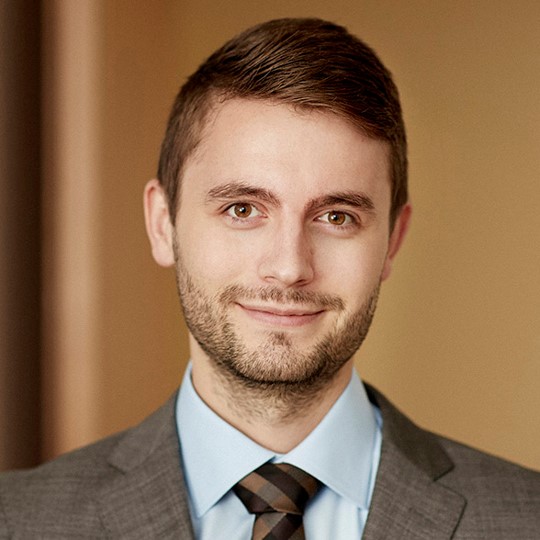Supreme Court Closes Book on the "Danish Cases"
On 16 September 2024, the Danish Supreme Court delivered its final judgment in the last of the six "Danish Cases" on beneficial ownership, which the European Court of Justice ruled on in 2019. This article briefly summarizes the Supreme Court's final judgment and highlights the main lessons from the six cases on beneficial ownership.
A Trip Down Memory Lane
In February 2019, the Court of Justice of the European Union (CJEU) ruled in several joined cases on Danish withholding tax on dividends and interest paid to companies in other EU Member States and where those companies were not, in the eyes of the Danish Tax Agency, "beneficial owners" of the income. The CJEU ruled that there is a general prohibition of abuse in EU law, which must be applied by all EU Member States, and that the concept of beneficial ownership is not only an international tax law concept but also an EU law concept.
The CJEU judgment in the dividend withholding cases is available here: Joined Cases C-116/16 and C-117/16
The CJEU judgment in the interest withholding cases is available here: Joined Cases C-115/16, C-118/16, C-119/16, C-299/16
On 9 January 2023 the Danish Supreme Court ruled on dividend withholding taxes, and on 4 May 2023 the Supreme Court ruled on interest withholding taxes on paid and accrued interest.
Case C-119/16 C Denmark 1, commonly referred to as the "Cook case", was one of the four interest cases brought before the CJEU. On 8 December 2023, the Danish High Court ruled in favor of the Danish Ministry of Taxation, a decision that was upheld in the final judgment by the Danish Supreme Court on 16 September 2024.
The Case in Brief
The interest in question were accrued or paid on promissory notes originally totalling EUR 900 million issued by C Denmark International Holdings ApS to C Sweden Finance on 1 January 2005 as payment for all shares in C Denmark International ApS.
The issue of the promissory notes and the transfer of the shares were part of a restructuring of the C Group, which took place around the turn of the year 2004/2005.
Prior to the restructuring, the Danish company C Denmark International was owned by C International Finance Limited, domiciled in the Cayman Islands. C International Finance Limited (Cayman Islands) was owned by the US company C Group Incorporated.
The restructuring involved the incorporation of three intermediate holding companies between C International Finance Limited (Cayman Islands) and C Denmark International. As part of the restructuring, C International Finance Limited (Cayman Islands) transferred the shares in C Denmark International in exchange for promissory notes with the same principal amount and terms as those issued by C Denmark International Holdings to C Sweden Finance.
The shares remained within the C Group, as C International Finance Limited (Cayman Islands) after the restructuring owned the Swedish company C Sweden Holding, which owned C Sweden Finance, which owned C Denmark International Holdings, which owned C Denmark International.
The illustration below shows part of the group structure after the restructuring:

The Supreme Court's Ruling
On 16 September 2024, the Danish Supreme Court ruled on the last of the six test cases before the CJEU. The Supreme Court first examined the EU abuse doctrine and beneficial ownership before turning to the specific case. The court then examined whether C Sweden Finance was the beneficial owner of the interest, followed by an examination of whether C Group Incorporated was the beneficial owner of the interest. The structure of the ruling is followed below.
The EU abuse doctrine and beneficial ownership
Before addressing the specific case, the Supreme Court referred to the European Court of Justice's judgment of 26 February 2019 in the interest withholding cases to underline the definition of beneficial owner, stating that in the CJEU judgment, it was established that the concept of beneficial owner does not include conduit companies, and that the term is used, among other things, to prevent tax avoidance and tax evasion (paragraph 92). It was further stated that a company can be shown to be a conduit company if its sole activity is to receive interest and pass it on to the beneficial owner or to other conduit companies. When assessing whether a company is a conduit company, consideration should be given to, among other things, the company's activities, its accounts, the structure of its costs and actual expenses incurred, its personnel, and the premises and equipment at its disposal (paragraph 131).
Further the Supreme Court referred to its rulings of 9 January 2023 and 4 May 2024, in which it found that the term "beneficial owner" must be understood in light of the OECD Model Convention, including the OECD commentary. As also stated in these rulings, it would be inconsistent with the purpose of a double taxation treaty if the source state were to grant relief or exemption from tax in cases where a person resident in a contracting state merely acts as a conduit for another person who actually receives the income in question. The Supreme Court first considered whether C Sweden Finance AB could be regarded as the beneficial owner of the interest and then decided whether C Group Incorporated was the beneficial owner.
Is C Sweden Finance the beneficial owner of the interest?
In determining whether C Sweden Finance was the beneficial owner of the interest, the Supreme Court assumed that the restructuring was partly due to a change in Danish tax legislation, which imposed tax in Denmark on interest paid to companies domiciled outside the EU and without a double taxation agreement with Denmark – such as C International Finance Limited (Cayman Islands) – and partly due to a desire to distribute dividends to C Group Incorporated (USA), since in 2005 it was possible to distribute dividends at a particularly favourable low tax rate in the US.
Hereafter some factual circumstances of the case were highlighted by the Supreme Court, stating that it appeared from the case that the two Swedish companies, C Sweden Holding and C Sweden Finance, which were added in connection with the restructuring, had no employees, turnover, or activities in the years 2005-2007, apart from transactions related to the establishment and settlement of the loans, as well as transactions in December 2005 related to a contemplated distribution of dividends of EUR 140 million from C International Finance Limited (Cayman Islands) to C Group Incorporated (US). Their taxable net income in Sweden was zero. The companies shared an address with a third company in the group, C Sweden AB. This was an office used by two employees of C Sweden. The rent was paid by C Sweden. There was no separate arrangement for C Sweden Finance or C Sweden Holding, and the companies had not entered into a lease agreement. Nor did they have a telephone number. The mail for the companies was opened by the two C Sweden employees, who also handled the bookkeeping, prepared the annual accounts and did the tax returns. There was no invoicing of wages between the companies and C Sweden.
Based on this, the Supreme Court found that the only activity of C Sweden Finance and C Sweden Holding was to receive the interest payments and transfer them to C International Finance Limited (Cayman Islands) as part of an overall pre-determined plan to transfer amounts from the group's Danish companies to the company in the Cayman Islands, and that the Swedish companies had been included in the group structure solely to avoid paying tax on the interest in Denmark. The Swedish companies had not been free to determine the use of the amounts, and the companies were to be considered as conduit companies.
The Supreme Court therefore agreed with the Danish Ministry of Taxation that C Sweden Finance and C Sweden Holding are not the beneficial owners of the interest.
Is C Group Incorporated the beneficial owner of the interest?
The Danish taxpayer argued that if C Sweden Finance was not the beneficial owner of the interest, C Group Incorporated (US) should be considered the beneficial owner, and that taxation should therefore be waived under Article 11 of the Double Taxation Treaty between Denmark and the USA.
As mentioned, part of the reasoning for the restructuring was a desire to distribute dividends to C Group Incorporated (USA), as in 2005 it was possible to distribute dividends at a particularly favourable low tax rate in the US. The Danish Supreme Court did not challenge this reason from a beneficial ownership perspective; instead, it concluded that in the line of the transactions, the interest was converted to dividends due to the ownership structure, as discussed below.
The Supreme Court first referred to the definition of interest in Article 11, stating that, according to Article 11(2) of the Treaty, "interest" means income from debt claims of any kind and any other income which, under the tax legislation of the contracting state in which the income originates, is subject to the same tax treatment as income from loans. For the avoidance of doubt, income referred to in Article 10 concerning dividends is not to be considered as interest. After defining interest, the Supreme Court turned to the case and noted that the interest had been paid or accrued on the promissory notes, originally totaling EUR 900 million. According to the information provided, C Group Incorporated (US) had not granted any loans in connection with the restructuring of the group or subsequently acquired the promissory notes. The EUR 140 million received by C Group Incorporated (US) from its subsidiary C International Finance Limited (Cayman Islands) was therefore not a payment of interest but a payment of dividends due to the ownership structure.
The Supreme Court therefore found that C Group Incorporated (US) could not be considered the beneficial owner of the interest within the meaning of Article 11 of the Double Taxation Treaty between Denmark and the USA. Consequently, taxation of the interest in Denmark should not be waived under the Treaty.
The Need to Refer Preliminary Questions to the CJEU
On 7 March 2024, the Danish taxpayer requested the referral of the following two additional preliminary questions to the CJEU:
"The question of whether the ultimate parent company, C Group Inc., qualifies as the beneficial owner of the interest under the circumstances of the case, and
The question of the temporal scope of the CJEU's ruling in the joined cases C-115/16, C-118/16, C-119/16, and C-299/16 (the withholding tax ruling)." (unofficial translation)
The Supreme Court did not accommodate the request, noting that, with regard to the aforementioned questions, particularly in light of the CJEU ruling of 26 February 2019 in the joined cases C-115/16, C-118/16, C-119/16, and C-299/16, there was not sufficient doubt about the interpretation of Directive 2003/49/EC (the Interest/Royalty Directive) or EU law in general to justify referring either of the two questions to the CJEU.
Lessons From the Cases
In particular, the CJEU considers it an artificial arrangement if the payment of withholding tax on dividends/interest is avoided by adding a conduit company into the group structure between the distributing company and the company that is the beneficial owner of the dividend/interest.
From the CJEU judgments in the beneficial owner cases - combined with the Danish Supreme Court's interpretation - the following criteria can be derived when assessing whether a company constitutes a conduit company. The list is not exhaustive but illustrates what should be taken into account when considering beneficial ownership issues:
- Temporal coincidence: Dividends/interest are transferred shortly after being received from the intermediate holding company to an entity that does not qualify for tax exemption.
- Lack of other activity: The company's only activity is to receive dividends/interest and forward them to the beneficial owner. The company has no other real economic activity. The absence of any real economic activity should be assessed on the basis of all relevant elements relating to, inter alia, the operation of the company, its accounts, the structure of the company's costs, the actual expenses incurred, the employed personnel, as well as the availability of premises and equipment.
- Contractual obligation to conduit: The existence of various contracts between the companies involved that give rise to cash flows within the group, the methods of financing the transactions, the assessment of the intermediate company's equity, and its lack of authority to dispose economically of the dividends received.
- De facto obligation: The group is organised in such a way that the intermediate company itself must forward the amounts received to a third company that does not qualify for tax exemption. This means that the company only generates negligible taxable income when it acts as a conduit to enable the cash flow from the debtor company to the beneficial owner.
- Legislative changes: A close temporal connection between the enactment of new tax legislation and the execution of complex financial transactions and loans within the same group.
Of course, the determination of who is to be considered beneficial owner remains fact-specific for each case, but each new case brings more guidance as to how the Danish courts will presumably rule. The number of judgments in so-called beneficial owner cases has stacked up in Denmark, and it seems clear that the Danish courts have set a strict general standard for an intermediate company to qualify for exemption from Danish withholding tax.
There are still many cases pending, and in some of them taxpayers should definitely consider whether there is a basis for proceeding. But even though we see a strict general standard for an intermediate company to qualify for exemption from Danish withholding tax, much still depends on the specifics of each case and the evidence provided by the taxpayer.







